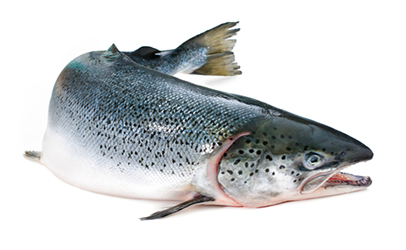 Safeway, the largest retail grocery companies in the U.S., have reportedly agreed not to sell genetically modified salmon. The decision was released Monday by a coalition of food safety, consumer, health and fishing groups.
Safeway, the largest retail grocery companies in the U.S., have reportedly agreed not to sell genetically modified salmon. The decision was released Monday by a coalition of food safety, consumer, health and fishing groups.The two grocery chains are now part of more than 9,000 stores across the country that have rejected carrying the GM AquAdvantage® salmon regardless of whether the U.S. Food and Drug Administration approves it for public consumption, which it has not yet officially done.
“By making commitments to not sell genetically engineered salmon, Kroger and Safeway have joined the large number of grocery chains, from Trader Joe’s to Target, that have wisely chosen to listen to the majority of consumers who do not want to eat genetically engineered fish,” said Dana Perls, food and technology policy campaigner with Friends of the Earth, a member of the consumer coalition. “Now Costco, Walmart, Albertsons and other retailers need to catch up and provide their customers with what they want: natural, sustainable seafood that isn’t genetically engineered in a lab.”
“Today’s announcement by major grocery retailers makes it even more clear that there is no demand for GE salmon,” Wenonah Hauter, executive director of Food & Water Watch, said in a statement. “It’s time for the FDA to deny the application for this unsustainable and unnecessary new genetically engineered food.”
Other retail grocers such as Target, Whole Foods and Trader Joe’s have also pledged not to sell GMO salmon, and Costco is being pressured to join them.
The GMO salmon, developed by MA-based AquaBounty Technologies, contains a growth gene from the Chinook salmon which the company says could allow its GMO salmon to grow to market size in half the time of a conventional Atlantic salmon.
FDA has made a preliminary finding that approving AquAdvantage® salmon for human consumption would not have a significant impact on the environment if, as planned, it is raised in tanks away from the ocean.
Meanwhile, U.S. consumer reaction to the GMO salmon has been critical and extensive. FDA received more than 1 million public comments asking it not to approve the GMO salmon last year. There have also been concerns raised about the overall effect on wild salmon stocks and the potential interbreeding of wild salmon with GMO salmon.





